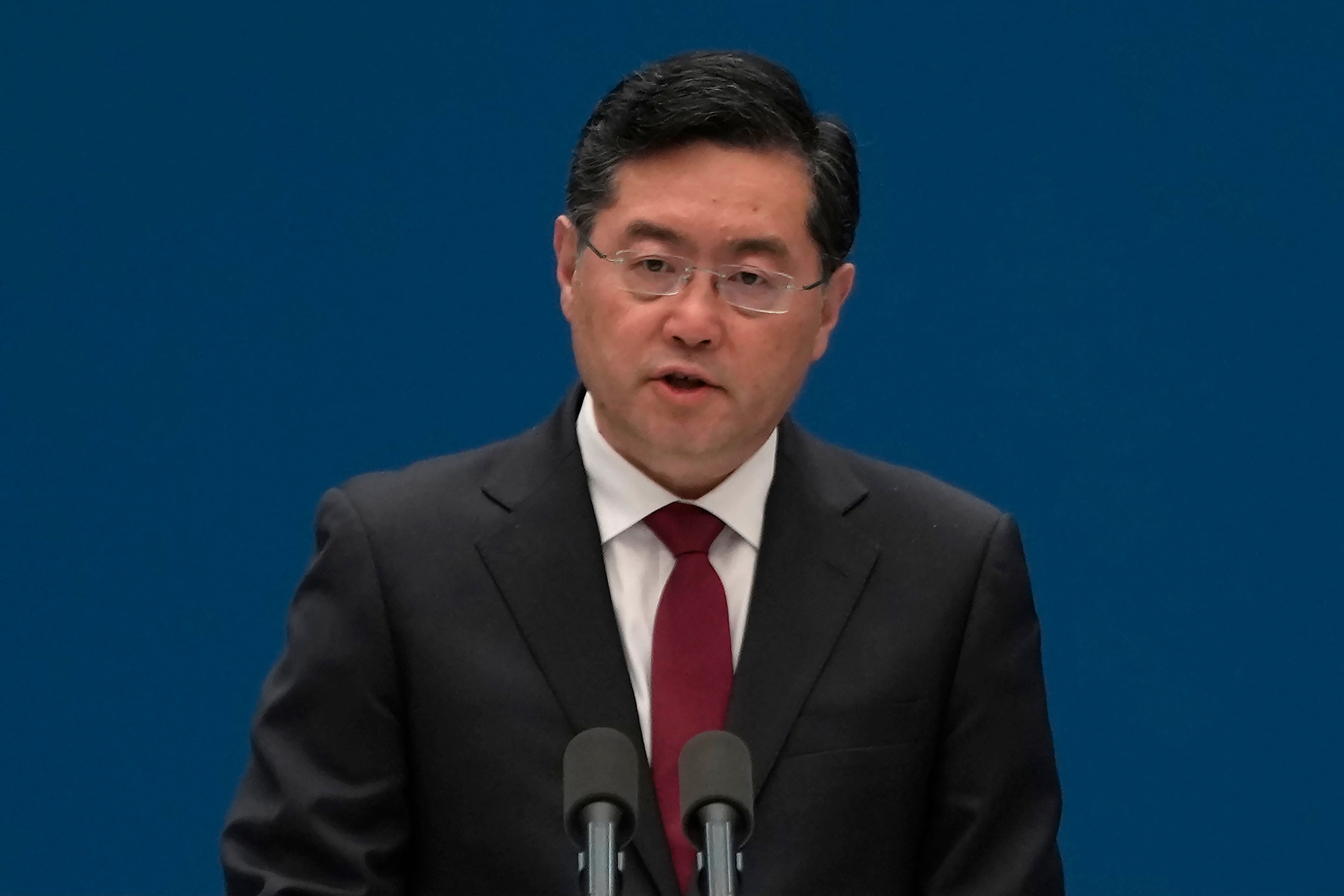China tells US to 'reflect deeply' over downturn in ties
China’s foreign minister has told the U.S. ambassador that Washington is responsible for the downturn in relations between the two countries and must “reflect deeply” before ties can return to a healthy track

Your support helps us to tell the story
From reproductive rights to climate change to Big Tech, The Independent is on the ground when the story is developing. Whether it's investigating the financials of Elon Musk's pro-Trump PAC or producing our latest documentary, 'The A Word', which shines a light on the American women fighting for reproductive rights, we know how important it is to parse out the facts from the messaging.
At such a critical moment in US history, we need reporters on the ground. Your donation allows us to keep sending journalists to speak to both sides of the story.
The Independent is trusted by Americans across the entire political spectrum. And unlike many other quality news outlets, we choose not to lock Americans out of our reporting and analysis with paywalls. We believe quality journalism should be available to everyone, paid for by those who can afford it.
Your support makes all the difference.China’s foreign minister told the U.S. ambassador on Monday that Washington is responsible for the downturn in relations between the two countries and must “reflect deeply” before ties can return to a healthy track, an official said.
Qin Gang’s comments follow a suspension of serious dialogue on a range of issues between the world’s largest economies, increasingly at odds over tariffs, attempts by Washington to deprive China of cutting-edge technology, and China’s claims to self-governing Taiwan and large parts of the South and East China Seas.
China's Foreign Ministry quoted Qin as telling Ambassador Nicolas Burns that a “series of erroneous words and deeds by the U.S." since a meeting in November between U.S. President Joe Biden and Chinese leader Xi Jinping "have undermined the hard-won positive momentum of Sino-U.S. relations.”
“The U.S. side should reflect deeply, meet China halfway, and propel China-U.S. relations out of the difficulties and back on the right track,” Qin was quoted as saying.
The United States should “correct its understanding of China and return to rationality,” Qin said, repeating his earlier accusation that the U.S. is attempting to suppress and contain China. Beijing routinely cites U.S. political and military support of Taiwan as infringing on its sovereignty.
Qin said ties had “grown icy” and the priority was to stabilize them "and avoid a downward spiral and unanticipated events.”
The U.S. should stop “undermining China’s sovereignty, security, and development interests,” particularly through support of Taiwan's independent identity, Qin said.
China says Taiwan must come under its rule, by force if necessary, while the United States says the relationship between the sides must be resolved peaceably. U.S. law requires it to treat threats to Taiwan, including a military blockade, as a matter of “grave concern,” though it remains ambiguous under what conditions U.S. forces could be dispatched to defend the island.
Despite the lack of formal diplomatic relations, the U.S. is Taiwan's largest supplier of military hardware and diplomatic support, even while it continues to maintain relations with Beijing. Biden has been seen as going a step further by repeatedly saying that the U.S. would back Taiwan militarily, and America has been upgrading basing arrangements with the Philippines, located just south of Taiwan.
U.S.-China military contacts have been on hold for years, and China's top staff refused to answer a call from Defense Secretary Lloyd Austin after then-Speaker of the House of Representatives Nancy Pelosi visited Taiwan last year. China retaliated for the visit by staging a naval and air force blockade of Taiwan and cutting off channels of communication with the U.S. on issues from environmental protection to maritime security.
At a daily briefing Monday, Chinese Foreign Ministry spokesperson Mao Ning described the meeting between Qin and Burns as ”a normal diplomatic arrangement."
In a tweet, Burns said he met with Qin and “discussed challenges in the U.S.-China relationship and the necessity of stabilizing ties and expanding high-level communication.”
Contacts between the sides have been fraught for months since U.S. Secretary of State Antony Blinken abruptly canceled a Beijing trip aimed at easing U.S.-China tensions in February. That came after a large high-altitude Chinese balloon was shot down after it sailed across the U.S., drawing Pentagon accusations of spying on sensitive military sites despite firm Chinese denials.